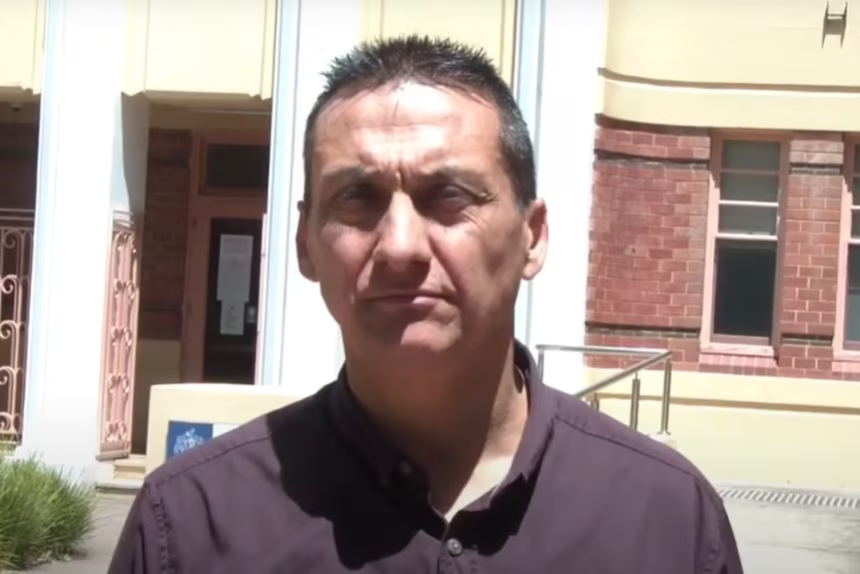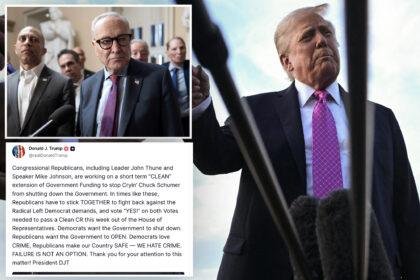Crackdown on Sovereign Citizens in Western Australia Raises Concerns Over Radicalization
In a significant law enforcement operation, Western Australia (WA) police recently seized over 100 firearms from individuals identified as “sovereign citizens.” This crackdown, prompted by the tragic shooting of two police officers in Victoria in August, has ignited a debate about the potential consequences of such actions on an already marginalized group. Experts warn that the measures may inadvertently deepen extremist sentiments among those who feel disenfranchised.
Understanding Sovereign Citizens
Sovereign citizens are individuals who believe they are not subject to the laws of their country, claiming that governmental authority is illegitimate. This ideology, which has roots in anti-government movements, has gained traction in various parts of the world, including Australia. The belief system often leads to confrontations with law enforcement, as adherents reject legal norms and regulations.
The recent police operation was catalyzed by the actions of Dezi Freeman, a self-identified sovereign citizen, who allegedly shot two police officers in Victoria. Despite extensive searches, Freeman remains at large, raising concerns about public safety and the potential for further violence.
The Police Response
WA police executed a series of raids over the weekend, utilizing new state laws that allow for the cancellation of firearm licenses if individuals are deemed “not fit and proper.” Police Minister Paul Papalia stated that the decision to act was based on thorough intelligence gathering, emphasizing the heightened risk posed by individuals holding such beliefs.
However, the operation has drawn criticism for its broad application of new gun laws, with some experts cautioning that it may exacerbate feelings of persecution among sovereign citizens. Keiran Hardy, an associate professor at Griffith University specializing in radicalization, expressed concern that the crackdown could reinforce the very grievances that fuel extremist ideologies.
Potential for Counterproductive Outcomes
Dr. Hardy highlighted the unique challenges posed by sovereign citizens, noting that their views on authority and the rule of law complicate traditional law enforcement approaches. He argued that the messaging surrounding the crackdown is crucial. Instead of framing the issue around sovereign citizen beliefs, he suggested that authorities should focus on public safety concerns.
“The most important thing is that the police get the messaging right,” Dr. Hardy stated. “It should be less about the beliefs themselves and more about the specific reasons for revoking licenses, such as public safety.”
Broader Implications of New Gun Laws
The Sporting Shooters Association of WA has voiced concerns that the new laws may be applied too broadly, potentially leading to abuses of power. Paul Fitzgerald, the association’s president, warned that while the intent behind the legislation may be good, its long-term implications could be troubling. He raised questions about how future governments might interpret and enforce these laws, particularly regarding individuals’ beliefs and attitudes.
Fitzgerald’s apprehensions echo historical instances where laws intended to enhance public safety have been misused, leading to the marginalization of specific groups. The potential for overreach in the application of these laws raises critical questions about civil liberties and the balance between safety and individual rights.
The Role of Law Enforcement
WA Police Commissioner Col Blanch defended the operation, stating that the safety of the community and police officers is paramount. He noted that in the past three years, six officers have been killed by firearms while responding to incidents, a statistic that underscores the urgency of the situation. Blanch emphasized that assessments from medical professionals would be considered when determining the fitness of individuals to hold firearm licenses.
Despite the police’s commitment to community safety, the operation has sparked a broader conversation about the effectiveness of such crackdowns in addressing the root causes of radicalization. Experts argue that a more nuanced approach, focusing on engagement and dialogue, may yield better results in reducing extremist sentiments.
Community Reactions and Future Considerations
The community’s response to the police operation has been mixed. While many support the need for increased safety measures, others express concern about the potential for alienation and radicalization among sovereign citizens. The fear is that heavy-handed tactics may push individuals further into extremist ideologies, creating a cycle of distrust and violence.
A state government spokesperson indicated that individuals who lose their firearm licenses have the right to appeal the decision in the State Administrative Tribunal. This provision aims to ensure that due process is followed, but questions remain about the effectiveness of such measures in addressing the underlying issues of radicalization.
Conclusion
The recent crackdown on sovereign citizens in Western Australia highlights the complex interplay between public safety and civil liberties. As authorities navigate this challenging landscape, the potential for unintended consequences looms large. Experts urge a careful approach that prioritizes dialogue and understanding over punitive measures, emphasizing the need to address the root causes of radicalization rather than merely its symptoms. The ongoing situation serves as a reminder of the delicate balance that must be struck in the pursuit of safety and justice in a diverse society.











